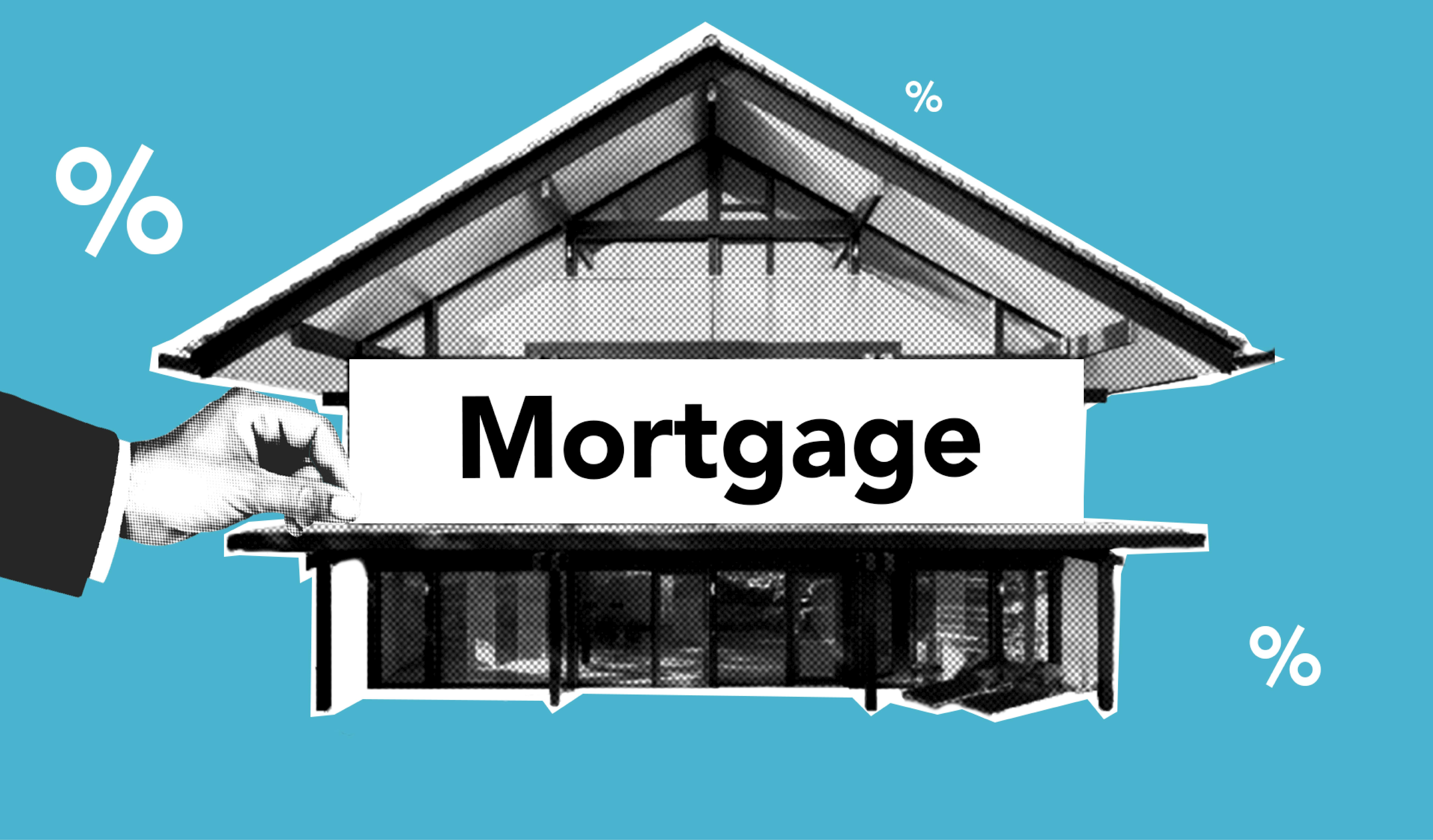How to Start Your Career in Real Estate: A Comprehensive Guide
Mastering the Real Estate Game: A Comprehensive Guide to a Rewarding Career
Embarking on a career in real estate can be both exciting and daunting. From understanding the role of a real estate agent to navigating the intricacies of the market, there’s a lot to consider. Whether you’re contemplating a career shift or looking to deepen your understanding of the real estate industry, this article serves as your go-to guide. We’ll explore the various facets of becoming and thriving as a real estate agent, offering insights into the skills, differences, steps, earnings potential, and the inherent pros and cons of this dynamic career path.
TL;DR: This guide covers the essentials of starting a career in real estate, highlighting the role of real estate agents, the differences between agents and brokers, a step-by-step guide to becoming an agent, potential earnings, and the pros and cons of a career in real estate. Additionally, it provides a list of resources and tools for prospective real estate professionals.
Table of Contents:
1. Understanding the Role of a Real Estate Agent
2. Key Differences Between Real Estate Agents and Brokers
3. Step-by-Step Guide to Becoming a Real Estate Agent
4. Potential Earnings for Real Estate Agents
5. Pros and Cons of a Real Estate Career
6. Making an Informed Decision
7. Additional Resources and Tools
The real estate industry offers a unique blend of opportunities and challenges. As a career, it demands a mixture of interpersonal skills, market knowledge, and the determination to succeed. Among the many abilities that pave the way to success, market analysis skills stand out as fundamental. Let’s dive deep into the significance of these skills and how they catalyze the journey of a real estate professional.
Market Analysis Skills
The cornerstone of a successful real estate career is undeniably the proficiency in market analysis. This skill is crucial for agents who aim to offer their clients the most accurate, up-to-date information on property values and market trends. By mastering market analysis, agents ensure that buyers are making informed decisions that represent good value, and sellers are setting prices that are both competitive and realistic, reflecting the best market price possible.
Understanding the local real estate market is the first step in developing strong market analysis skills. This involves keeping a pulse on the supply and demand dynamics within specific neighborhoods, being aware of any zoning changes or developments that could affect property values, and continuously monitoring the sales data of comparable properties. Local market knowledge not only helps in advising clients accurately but also positions the agent as a go-to expert in their area.
With this comprehensive framework, you’re equipped to navigate through the landscape of a real estate career, understanding its demands, opportunities, and the pivotal role of market analysis in achieving success. Let’s delve further into what it takes to carve out a successful path in the dynamic world of real estate.
Market Analysis Skills
The cornerstone of a successful real estate career is undeniably the proficiency in market analysis. This skill is crucial for agents who aim to offer their clients the most accurate, up-to-date information on property values and market trends. By mastering market analysis, agents ensure that buyers are making informed decisions that represent good value, and sellers are setting prices that are both competitive and realistic, reflecting the best market price possible.
Understanding the local real estate market is the first step in developing strong market analysis skills. This involves keeping a pulse on the supply and demand dynamics within specific neighborhoods, being aware of any zoning changes or developments that could affect property values, and continuously monitoring the sales data of comparable properties. Local market knowledge not only helps in advising clients accurately but also positions the agent as a go-to expert in their area.
Staying updated with market fluctuations is another critical aspect. Real estate markets are influenced by a myriad of factors including economic indicators, interest rates, and even seasonal trends. Agents who are adept at identifying and interpreting these fluctuations can provide strategic advice to their clients, such as the ideal timing to buy or sell.
Utilizing tools and methods for effective market analysis is also paramount. This includes leveraging multiple listing service (MLS) databases, property appraisal tools, and real estate analytics software that can provide comprehensive data and trends at a macro and micro level. Furthermore, networking with other professionals in the industry can yield insights that aren’t readily available through public channels.
Incorporating a variety of data sources and utilizing analytical tools can significantly enhance an agent’s market analysis capabilities. For instance, demographic and socio-economic data can provide context on who is buying or selling in certain areas and why. Analyzing historical data trends can also offer predictive insights into future market movements, which can be invaluable for strategic planning.
Ultimately, the ability to conduct thorough and accurate market analysis is a key differentiator among real estate agents. It not only bolsters an agent’s reputation for reliability and expertise but directly benefits clients by helping them to make more informed decisions. As the real estate market continues to evolve, adapting and refining market analysis skills will be an ongoing process for forward-thinking agents aiming to stay ahead in a competitive field.

Licensing and Education Requirements
Understanding the licensing and education requirements for real estate agents and brokers is crucial for anyone contemplating a career in this field. The journey to becoming a real estate professional begins with education, but the pathway diverges considerably between agents and brokers, mainly in terms of intensity and depth of study.
Real Estate Agents must complete a pre-licensing course from an accredited real estate licensing school. The specific hours required vary by state, but typically, these courses range from 40 to 180 hours of classroom instruction. Prospective agents must then pass the real estate licensing examination in their state. This exam covers national real estate principles and laws, as well as state-specific information. Some states also require background checks and post-licensing coursework to maintain a real estate license.
Brokers, on the other hand, face more rigorous educational demands. Before pursuing a broker’s license, an individual must usually have experience working as a licensed real estate agent—often for a minimum of two to three years. Beyond this, brokers are required to complete additional real estate courses focusing on finance, business management, ethics, and law. These courses go beyond the basics covered in agent training, ensuring brokers are well-prepared for their expanded role. On average, broker pre-licensing courses can range from 60 to 900 hours, significantly more than what is required for agents.
The broker’s exam is more comprehensive and challenging than the agent’s exam, covering topics such as opening and running a real estate brokerage, property management, and advanced real estate law. The depth of knowledge required reflects the complexity and responsibility of a broker’s role in the real estate industry.
Variations across states are notable. For instance, some states have reciprocal agreements, allowing licensed professionals from one state to practice in another with minimal additional requirements. Others have unique prerequisites or offer licenses with special endorsements.
The specifics of these requirements underline the importance of understanding the distinct professional paths within real estate. Aspiring real estate professionals must carefully navigate these educational and licensing requirements, taking into account their career ambitions, whether they aim to facilitate transactions as agents or oversee operations as brokers. This nuanced understanding of prerequisites is just the beginning of comprehending the broader landscape that differentiates real estate agents from brokers.

Budgeting for Licensing and Training Costs
The journey to becoming a real estate agent begins with a vital step: understanding and planning for the financial investment required for licensing and training. Prospective agents must navigate through various expenses that could impact their budget and overall readiness to enter the field. The costs associated with becoming a real estate agent include enrollment in pre-licensing courses, examination fees, and potentially additional training or mentorship programs. These financial commitments are foundational for gaining the knowledge and credentials necessary to practice real estate.
Pre-licensing courses are a mandatory step in preparing for your real estate exam and the associated costs can vary significantly based on the state or country, the mode of education (online vs. in-person), and the institution chosen. Generally, these courses can range from a few hundred to over a thousand dollars. It’s essential to research and compare the offerings of different educational institutions, not just in terms of cost, but also the quality of education, pass rates for first-time exam takers, and the support provided for students.
The examination fee for the real estate licensure exam is another cost to consider, which typically ranges from $100 to $300. This fee varies by location and may be required each time you attempt the exam, so passing on the first try can save a considerable amount of money.
Beyond the licensing exam, there’s often a need for supplementary training or mentorship to effectively transition into a successful real estate career. This continued education can include specialization courses, marketing and sales training, and other professional development opportunities. Costs here can range widely based on the depth of the training and the reputation of the provider. However, investing in these opportunities can significantly impact the success of a new real estate agent by broadening their skill set and enhancing their ability to attract and serve clients.
To manage these costs effectively, prospective agents should explore various strategies, such as:
-
Seeking Financial Aid or Scholarships: Some educational institutions offer financial aid, scholarships, or payment plans for qualifying students, which can alleviate upfront costs.
-
Comparing Educational Providers: Costs and value offerings differ, so it’s beneficial to compare multiple educational institutions and online platforms to find the best fit for your budget and learning style.
-
Budgeting and Saving: Establishing a dedicated savings plan for real estate education and licensing fees can help manage the financial burden without compromising on the quality of education.
In conclusion, while the path to becoming a real estate agent requires a significant financial commitment, careful planning, and research can make the process more manageable. By understanding the costs involved and exploring ways to reduce financial strain, aspiring agents can embark on their journey with confidence, laying a solid foundation for a successful career in real estate.

Impact of Location on Earnings
The location where a real estate agent decides to work substantially influences their potential earnings. This fact is due to several factors, primarily the median housing prices and the volume of sales in the area. For example, agents operating in metropolitan areas like San Francisco or New York City can earn significantly higher commissions due to the high property values compared to those in rural or less economically vibrant areas. However, the competition is also stiffer in these high-value markets, requiring agents to be at the top of their game to succeed.
Metropolitan areas are not the only lucrative markets for real estate agents. Regions experiencing population growth or economic boom, such as tech hubs outside traditional big cities, offer promising opportunities as well. The key for new agents is in conducting thorough market research to identify areas with strong sales activity and where they can build a sustainable practice.
On the other end of the spectrum, agents working in rural areas or cities with lower property values face different challenges. While the commission per sale might be lower in these regions, the competition might not be as fierce, and the cost of living and operating a business can be significantly less. Agents in these areas often rely on a higher volume of transactions to compensate for the lower commission per sale. Moreover, agents with deep local knowledge and strong community ties can carve out a niche, becoming the go-to expert in their regions.
Additionally, the area’s economic health and its impact on property values cannot be understated. Areas undergoing economic downturns or with high unemployment rates may see depressed property values and reduced sales activity, directly impacting an agent’s earnings. Conversely, regions with strong job markets and economic growth are likely to see increased demand for housing, benefiting agents working in those areas.
Ultimately, success in real estate comes down to more than the choice of location; it requires adaptability, market insight, and a commitment to understanding the unique needs and opportunities of each area. Strategic planning, including choosing a base of operations that aligns with an agent’s market knowledge and professional goals, is critical. New or relocating agents must weigh the potential earnings against the cost of living and the level of competition in different regions to make informed decisions about where to establish their practice. Identifying underserved niches within specific markets can also be a path to success, offering a way to stand out and build a strong, lucrative career regardless of geographical location.

Flexibility in Scheduling
The allure of a career in real estate often begins with the promise of flexibility. Unlike the conventional 9-to-5 job, real estate professionals enjoy a significant degree of control over their schedules. This flexibility caters especially to those striving for a harmonious balance between their professional and personal lives. For individuals with family obligations, or those pursuing a real estate career as a supplementary income alongside another employment, the ability to set their own hours is invaluable.
This unparalleled scheduling flexibility in real estate is not just about working less; it’s about working smarter. Agents can schedule meetings, showings, and open houses at times that suit their personal commitments and their clients’ schedules. This flexibility also extends to administrative and marketing efforts, which can be managed at times most productive for the agent.
However, the flip side to this flexibility is the expectation of being available when clients need you, which can sometimes intrude into evenings and weekends—the prime time for real estate activities. The competitive edge often goes to those willing to be there for their clients at crucial moments, which sometimes means stepping outside standard working hours.
Comparatively, traditional 9-to-5 jobs offer predictability and a clear separation between work and personal life, which some may prefer. In contrast, real estate’s flexible scheduling demands a high level of self-discipline and time management skills. Agents must navigate the fine line between accommodating clients and maintaining their own well-being. This balancing act is a skill that can take time to develop but is crucial for long-term success and satisfaction in the field.
The appeal of setting one’s own schedule cannot be overstated, particularly for those passionate about real estate and motivated by the challenges and rewards it offers. While the freedom to dictate one’s workday is a significant perk, it requires a proactive approach and a willingness to work odd hours, underscoring the importance of passion for the job in sustaining a successful real estate career. In essence, the flexible scheduling in real estate offers a unique opportunity to design a professional life that not only meets financial goals but also aligns with personal values and lifestyle choices, provided one is adept at managing the autonomy it requires.

Balancing Financial Commitments with Potential Rewards
The journey into a real estate career begins with understanding the balance between initial financial commitments and the potential rewards. Starting as a real estate agent demands a considerable upfront investment that goes beyond the monetary; it encompasses time, effort, and strategic financial planning. Before taking the leap, prospective agents must consider licensing fees, pre-licensing courses, examination fees, and additional costs associated with joining real estate boards and associations. These costs can vary widely depending on the state or country in which one is planning to practice.
Initial start-up costs also include marketing and business expenses, such as creating a website, business cards, and advertising listings. It’s not uncommon for new agents to invest thousands in the first few months without seeing immediate returns. Therefore, robust budgeting and financial planning are crucial at the outset of one’s real estate career. Understanding and managing these expenses wisely can determine the trajectory of an agent’s success.
On the flip side, the potential earnings in real estate can be significant. Successful agents can earn substantial commissions, with income directly correlated to the amount of work and dedication they put into building their careers. However, it’s important to note that real estate income is highly variable, hinging on factors such as market conditions, economic cycles, and personal sales performance.
The most successful real estate professionals are those who manage their finances wisely, particularly during the early stages of their careers when income can be unpredictable. They often set aside a portion of each commission to cover slow periods, invest in continuous professional development, and leverage budgeting tools and resources to maintain a healthy financial balance.
Prospective agents must be prepared for the financial ebb and flow typical in the real estate industry. Those who approach their real estate career with a well-thought-out financial plan, who are prudent with their initial investments, and who understand the importance of saving and budgeting are more likely to navigate the challenges of the industry successfully. Market conditions will always play a significant role in an agent’s income potential, but understanding these dynamics, alongside smart financial planning, can help mitigate the uncertainties and set the foundation for a rewarding career in real estate.

Additional Resources and Tools for Aspiring Real Estate Professionals
Licensing Requirements by State
The journey to becoming a successful real estate professional begins with understanding the licensing requirements, which can significantly vary from state to state. To navigate this complex landscape, aspiring real estate agents should consult up-to-date resources that detail their state’s specific prerequisites for obtaining a real estate license. Typically, this information is best sourced directly from the state’s real estate commission or regulatory board. These authoritative bodies provide the most accurate and current details, ensuring applicants meet all necessary educational and regulatory standards before starting their career. Websites such as the Association of Real Estate License Law Officials (ARELLO) can also offer centralized information that makes comparing state requirements easier.
Financial Planning for Start-up Expenses
Embarking on a real estate career involves an initial investment into your future success. Early financial planning is crucial, especially when considering start-up expenses like licensing fees, membership dues to real estate associations, and marketing costs to attract your first clients. Tools such as Mint, Quicken, or even specialized financial planning templates could help you forecast these costs and manage your budget effectively. Creating a well-thought-out budget using these resources ensures you are financially prepared for the initial phase of your career, setting a solid foundation for future success.
Market Analysis Tools
An in-depth understanding of market trends and demographics is vital for any real estate professional aiming to succeed. Various apps and websites offer valuable insights into real estate data, including market analysis and trend reports, which are essential for identifying profitable markets and niches. Tools like Zillow, Trulia, and Realtor.com, among others, provide access to comprehensive market data that can help real estate agents make informed decisions about where and when to invest their efforts. Utilizing these tools effectively enables agents to anticipate market shifts and adapt their strategies accordingly.
Networking Platforms for Real Estate Professionals
Networking plays a pivotal role in the real estate industry. It opens doors to mentorship opportunities, partnerships, and invaluable client referrals. Professional social media platforms such as LinkedIn, real estate forums like ActiveRain, and local networking events serve as excellent venues for building and nurturing professional relationships. Online communities specifically tailored for real estate professionals, like the National Association of Realtors (NAR) network, offer additional opportunities for connecting with like-minded individuals and gaining insights into the industry.
Continuing Education and Skill Development
The real estate landscape is constantly evolving, with new regulations, trends, and technologies shaping the industry. Continuous learning and skill development are therefore essential for maintaining competitiveness and compliance. Platforms like Udemy, Coursera, and the REALTOR® University provide a plethora of online courses, webinars, and in-person workshops focused on real estate practices, legal aspects, and market trends. These educational resources help real estate professionals stay informed, improve their skills, and adapt to the dynamic nature of the real estate market.
By leveraging these resources and tools, aspiring real estate professionals can not only meet the initial requirements of launching their career but also sustain long-term growth and success in the industry.In this insightful article, we’ve explored the multi-faceted journey of becoming a real estate agent, diving deep into the roles, differentiations, steps, potential earnings, and the realistic view of what a career in real estate entails. From understanding the intrinsic duties of a real estate agent and distinguishing between agents and brokers to dissecting the step-by-step process of entering the real estate industry and evaluating the potential earnings, this guide aims to provide a clear pathway for aspiring professionals. Furthermore, by weighing the pros and cons, this article encourages a thoughtful deliberation on the career’s feasibility, allowing readers to make an informed decision with a balanced perspective. Lastly, the additional resources and tools section enriches this guide, offering a comprehensive toolkit for those ready to embark on or further their real estate career.
FAQ: Top 10 Questions About Becoming a Real Estate Agent
-
What does a real estate agent do?
A real estate agent assists clients in buying, selling, and renting properties. They offer advice, conduct market analysis, negotiate deals, and help navigate the legalities of real estate transactions. -
How do real estate agents and brokers differ?
Real estate agents work under brokers, who are licensed to manage their own real estate businesses. Brokers can work independently or hire agents, while agents cannot operate without a broker’s license. -
What are the steps to becoming a real estate agent?
Steps include completing a pre-licensing course, passing the real estate licensing exam, choosing a brokerage, and starting your practice. Continuous learning and networking are also vital. -
How much can a real estate agent earn?
Earnings vary widely based on location, market conditions, and the agent’s effort and experience. Some agents earn in the six figures, while others might earn less, especially when starting. -
Is real estate a good career choice?
It can be rewarding for those who enjoy flexibility, are self-motivated, and possess strong sales and customer service skills. However, incomes fluctuate, and it requires dedication and a financial cushion, especially in the beginning. -
What investments are needed to start a real estate career?
Investments include education, licensing fees, association dues, and initial marketing and business expenses. Budgeting wisely for these start-up costs is crucial. -
How can I find out about licensing requirements in my state?
Check with your state’s real estate commission or regulatory board. Websites like ARELLO offer centralized information on state-specific requirements. -
What tools do real estate agents use for market analysis?
Many use online platforms like Zillow, Trulia, and Realtor.com for market data, trend analysis, and demographic information. -
How important is networking in real estate?
Extremely important for career growth, mentorship, partnerships, and client referrals. Engaging with local and online real estate communities is beneficial. -
Where can I find educational resources for real estate professionals?
Platforms like Udemy, Coursera, and REALTOR® University offer courses, webinars, and workshops focused on real estate practices, trends, and legal aspects.
Becoming a real estate agent is a journey that requires commitment, continuous learning, and adaptation to market demands. By considering the outlined steps, understanding the required investments, and utilizing the provided tools and resources, aspiring real estate professionals can build a successful career path. Remember, success in real estate is driven by dedication, networking, and a deep understanding of your market—equipped with the right knowledge and tools, your potential is limitless.